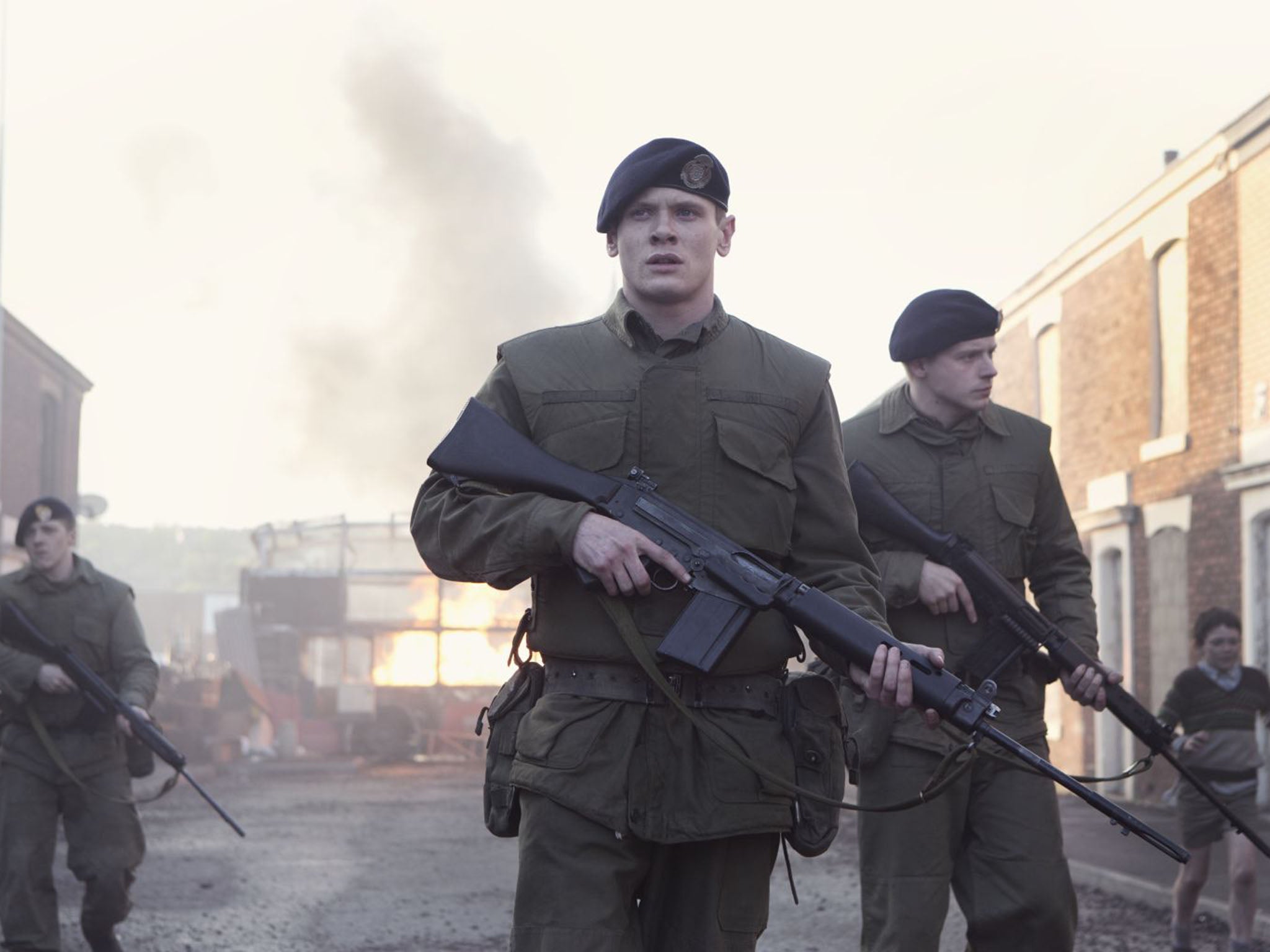'71, film review: An extraordinary thriller, but lacking in dialogue
’71 (15) Yann Demange, 99 mins Starring: Jack O’Connell, Killian Scott, Martin McCann

Your support helps us to tell the story
From reproductive rights to climate change to Big Tech, The Independent is on the ground when the story is developing. Whether it's investigating the financials of Elon Musk's pro-Trump PAC or producing our latest documentary, 'The A Word', which shines a light on the American women fighting for reproductive rights, we know how important it is to parse out the facts from the messaging.
At such a critical moment in US history, we need reporters on the ground. Your donation allows us to keep sending journalists to speak to both sides of the story.
The Independent is trusted by Americans across the entire political spectrum. And unlike many other quality news outlets, we choose not to lock Americans out of our reporting and analysis with paywalls. We believe quality journalism should be available to everyone, paid for by those who can afford it.
Your support makes all the difference.Yann Demange’s brilliant debut feature is an honourable companion piece to Carol Reed’s 1947 classic, Odd Man Out.
Instead of James Mason’s IRA man being chased down on the streets in Reed’s film, the hunted man here is a young British squaddie (played by Jack O’Connell) in Belfast in 1971 who becomes separated from his platoon.
Gregory Burke’s earthy dialogue captures the fatalism, humour and fear of the very callow British soldiers who think they’re off to Germany but find themselves in Northern Ireland as the violence is intensifying.
The relatively light-hearted tone changes instantly during an early riot sequence, filmed in bravura fashion by Demange. Angry housewives are banging the pavement with dustbin lids. Youths are hurling stones and piss bombs at the baffled soldiers. One kid makes off with a rifle and O’Connell gives chase. It’s at this point that someone is killed and O’Connell finds himself abandoned and disoriented on the Belfast streets.
The cinematographer Anthony Radcliffe (who also shot Pride) uses hand-held camerawork to crank up the tension but also brings a gritty lyricism to the film. The production design helps capture the feel of early 1970s Belfast without lapsing too far into caricature, although the undercover Brits do have long hair and sideburns.
As he hides out, the squaddie becomes a pawn in an embroiled game in which every side is behaving with the maximum amount of deceit. Tensions are rising between the IRA leadership and the younger, more aggressive “provos”. The Brits are playing one-off Catholic and Protestant Loyalist paramilitaries against each other and have informers everywhere.
What isn’t clear is Demange and Burke’s perspective on the “Troubles”. They don’t probe too deeply into the economic and political origins of the conflict, beyond a potted history that the soldiers are given on arrival in Belfast. Even so, this is an extraordinary debut, a thriller that strikes a relentless tempo without losing its sense of atmosphere or attention to character. O’Connell has little dialogue but registers very strongly as Demange’s odd man out – part martyr, part action hero.
Join our commenting forum
Join thought-provoking conversations, follow other Independent readers and see their replies
Comments